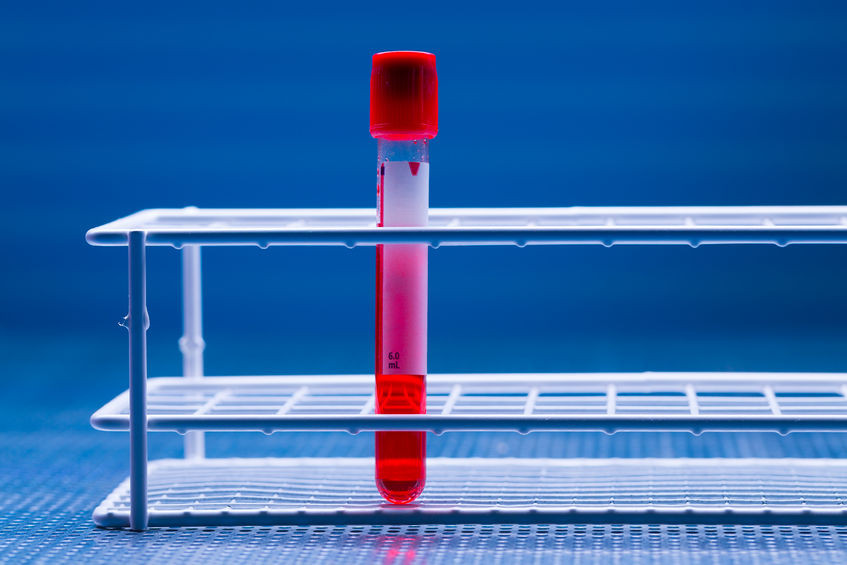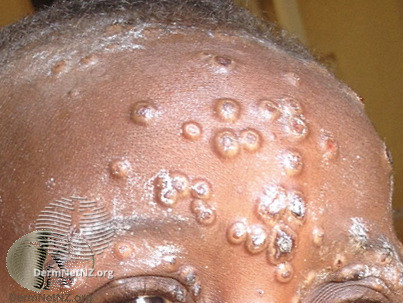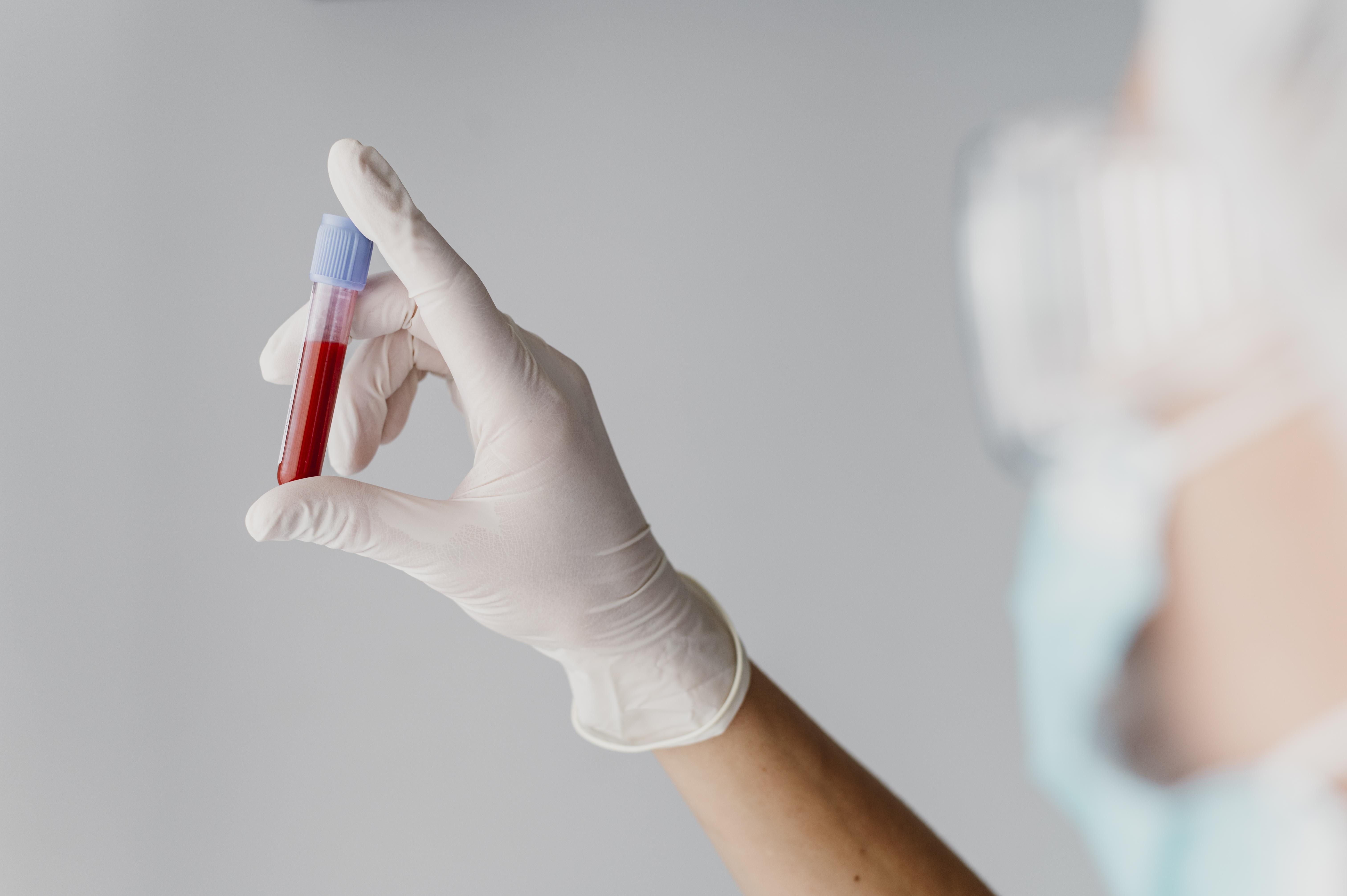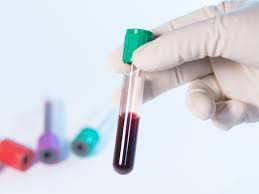Definition
Rubella is a viral infection that can be transmitted via respiratory droplets from coughing and sneezing, or through extended close contact with an infected individual. This infection typically presents with mild symptoms such as fever and skin rash. It is a self-limiting condition requiring no specific treatment.
However, if pregnant women are infected, especially within the first four months of pregnancy, the virus could spread to the fetus during pregnancy and can result in significant complications. Congenital rubella syndrome is one of such complications, which is associated with hearing impairments, cardiovascular anomalies, and ocular defects.
Following rubella infection, the immune system will produce antibodies specific to the rubella virus. One of the antibodies is called IgG and they will remain in the bloodstream. This test will measure the antibody levels in a blood sample and aid in the diagnosis of rubella in suspected individuals. This test can help provide information whether a suspected rubella infection is a current infection, whether the person has been infected with rubella previously, or whether they have received a rubella vaccination.
We also have an article on rubella which you can read here: Rubella - Definition, Cause and Risk Factor.
Indication
A rubella test could be recommended by a doctor to find out whether:
- A woman who is currently pregnant or planning to conceive possesses immunity to rubella
- A recent infection in an individual was induced by the rubella virus
- A recent infection in a suspected case was induced by the rubella virus
- A person has been vaccinated against rubella
- Healthcare professionals in contact with pregnant women have had rubella
- Congenital rubella is present in infants born with birth defects
Contraindication
There are no individuals for whom it is advised against to check their serum anti-rubella IgG level; everyone is eligible to undergo blood tests for monitoring anti-rubella IgG in their bodies.
Preparations Prior to Test
No test preparation is needed prior to the anti-rubella IgG test. Ensure your healthcare provider is aware of any medications or supplements you may be taking. Whether or not you need to stop taking any of these medications for the test depends on your physician's instructions.
Test Procedures
A healthcare professional will extract a blood sample from a vein, usually in your arm, using a tiny needle. Once the needle is placed, a little sample of blood will be drawn into a test tube. You may experience a slight stinging sensation when the needle is inserted or removed.
Normal and Abnormal Values
There could be slight difference of reference ranges in various laboratories depending on the specific assay or procedure utilized to check the sample. It is important to understand that these normal ranges serve just as a general guide.
A negative result of the anti-rubella IgG test usually indicates that the person has never been infected with rubella or there is no prior exposure to the virus. Positive results indicate the detection of IgG antibodies and this signifies they have immunity to rubella.
Results and Suggestions (Follow-Up Tests)
The levels of anti-rubella IgG are measured in IU/mL or international units per milliliter. The interpretation of anti-rubella IgG test results could be viewed below:
- Detected or positive anti-rubella IgG result indicates immunity to rubella. Adequate IgG antibodies are present, suggesting the antibodies are produced from prior rubella infection or the individual has received rubella vaccination in the past.
- Repeat IgG testing may be advised if the test result is indeterminate.
- Undetected or negative anti-rubella IgG test result indicates lack of immunity to rubella. This means there is no evidence that the body ever produces a specific immune response to the rubella virus. The individual has never been infected with rubella previously, or has never received rubella vaccination. Women considering pregnancy should consult their doctor regarding rubella vaccination prior to pregnancy.
Consult to the Right Doctor
Usually, no additional test is required after the initial test to assess rubella immunity in adults. It's essential for you to engage in discussions with their doctor, obgyn specialist or internist regarding the interpretation of your test results. Your doctor can tell you what your test results mean and how they relate to your medical condition or your disease.
But, if you are pregnant and diagnosed with rubella, your doctor could recommend follow-up testing to check whether rubella has been transmitted to the fetus.
Want to know more information about laboratory, radiology and other examination results? Click here!
- dr Hanifa Rahma
Rubella Antibodies, IgG, Serum (2022). Retrieved 26 September 2022, from https://www.mayocliniclabs.com/test-catalog/Overview/34938
Rubella Test. (2022). Retrieved 26 September 2022, from https://www.testing.com/tests/rubella-test/
Rubella Test. (2022). Retrieved 26 September 2022, from https://www.cham.org/HealthwiseArticle.aspx?id=hw5576#hw5583
Why Do I Need a Rubella Test?. (2021). Retrieved 26 September 2022, from https://www.webmd.com/a-to-z-guides/rubella-test-antibodies#:~












